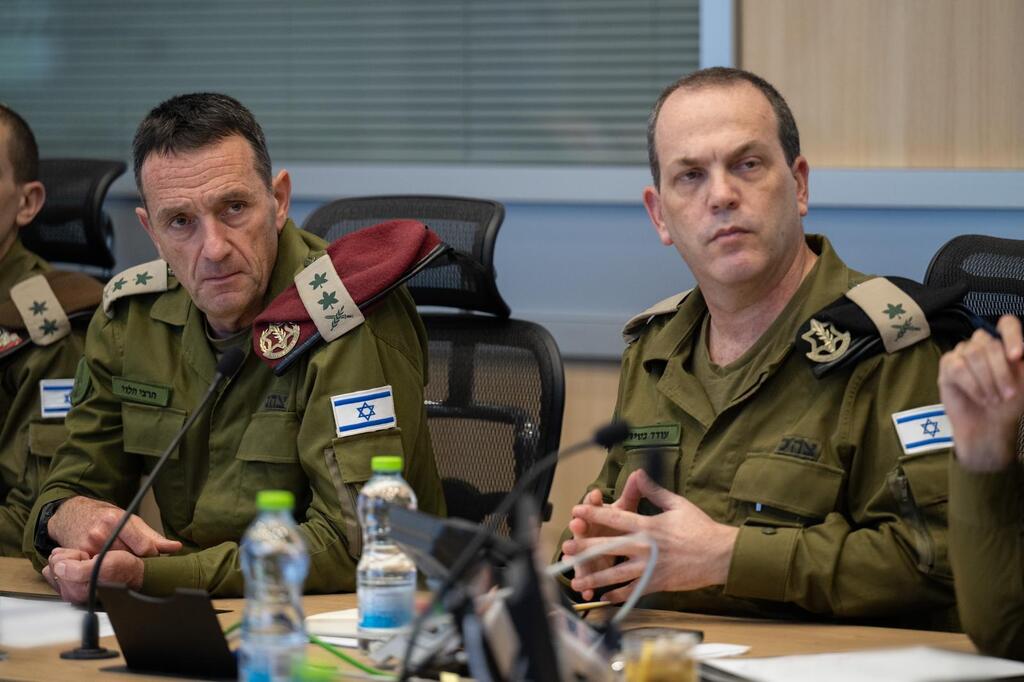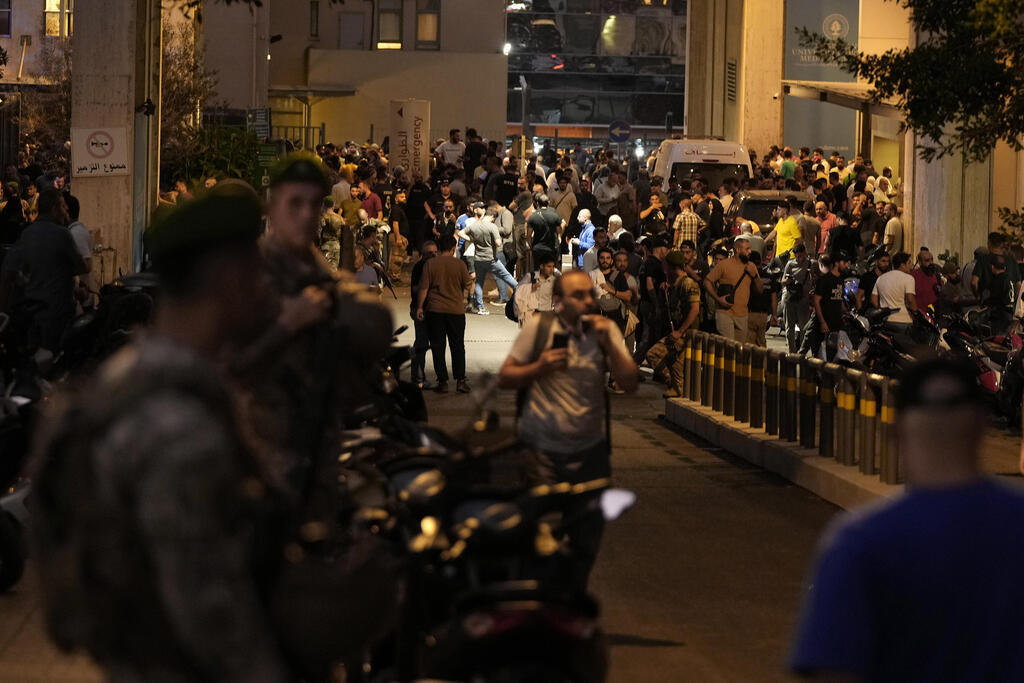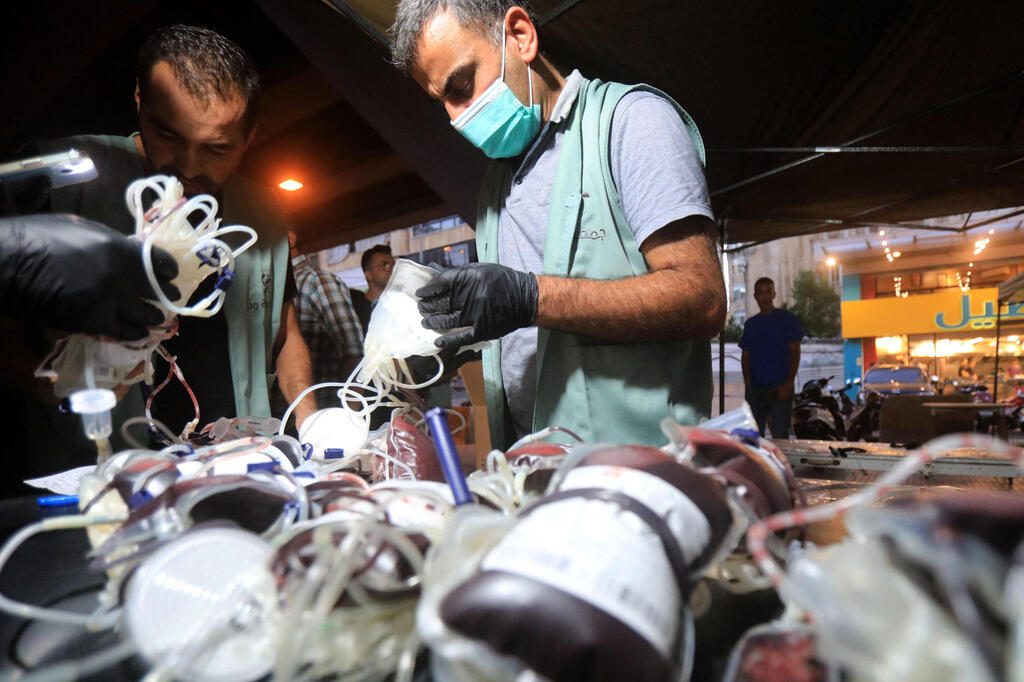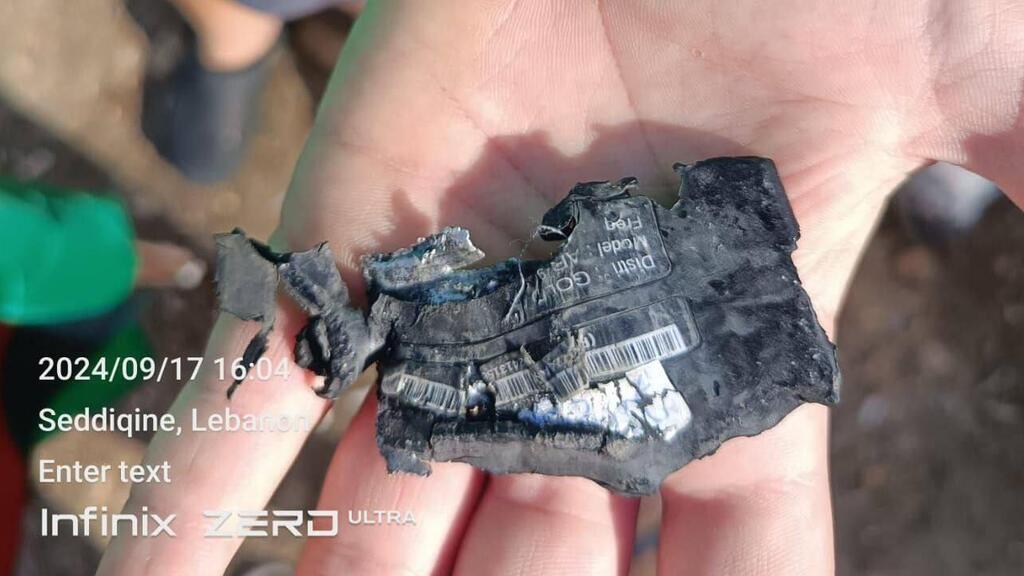Getting your Trinity Audio player ready...
Thousands of pagers belonging to Hezbollah operatives explode across Lebanon
Israel has not taken responsibility for the explosions of Hezbollah communication devices in Lebanon and Syria, which reportedly injured around 3,000 people, including 200 in serious condition, according to Lebanese sources.
Meanwhile, the Prime Minister’s Office has instructed all ministers to maintain silence on the matter. Currently, Prime Minister Benjamin Netanyahu, Defense Minister Yoav Gallant, and top security officials are holding a security consultation at the Defense Ministry headquarters in Tel Aviv.
5 View gallery
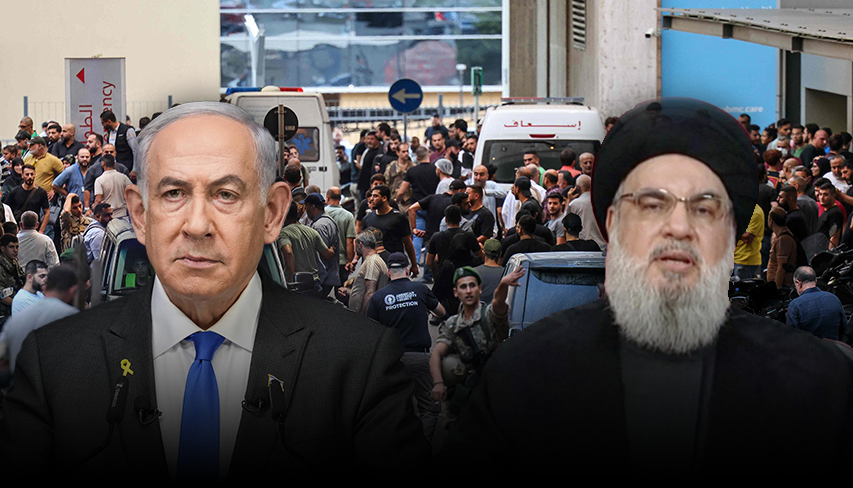

Prime Minister Benjamin Netanyahu; Hezbollah leader Hassan Nasrallah
(Photo: Anwar AMRO / AFP, AP /Ohad Zwigenberg, Pool, Al-Manar TV/Handout via REUTERS)
However, Israel’s working assumption is that Hezbollah will retaliate in response to the significant blow it has suffered, making it unlikely to remain passive. As a result, the political leadership has instructed the defense establishment to prepare for all possible scenarios.
There is ongoing debate among Israeli officials about how to respond if Hezbollah launches a broader attack—whether to seize the unprecedented operational opportunity and exact a heavy toll on Hezbollah, potentially pushing the group toward a cease-fire.
Sources familiar with the situation noted that Hezbollah would pay a heavy price if it escalates the conflict. The explosions occurred just hours after White special envoy Amos Hochstein left the region, departing from Ben Gurion Airport to New York.
Hochstein, who received considerable skepticism from Israel about the diplomatic efforts he is leading, appeared concerned and may have understood the direction Israel was heading.
The IDF announced that Chief of Staff Lt. Gen. Herzi Halevi held a situation assessment Tuesday evening with the General Staff Forum, "focusing on readiness for both offensive and defensive operations across all fronts," the army said, emphasizing that no changes have been made to Home Front Command guidelines at this stage but urged continued alertness, assuring that any updates will be communicated immediately.
Meanwhile, the escalation in the north has temporarily frozen Netanyahu's reported plans to replace Gallant with Gideon Sa'ar, head of the New Hope Party.
An Israeli source familiar with the matter said it became immediately clear that amid such a security escalation, Netanyahu would be unable to dismiss his defense minister. "It’s just a matter of timing. The dismissal will happen, but for now, the events have bought Gallant more time," the source explained.
Another senior Israeli official said, "Right now, the security situation is paramount. While the future is uncertain, it’s clear that at this moment, no one will fire Gallant."
U.S. Defense Secretary Lloyd Austin’s decision to visit Israel next Sunday underscores American concerns about the potential for wider escalation. This will be Austin’s third visit to Israel since the war began. He spoke with Gallant on Tuesday regarding the situation in Lebanon.
Despite the heightened tensions, the Prime Minister’s Office is continuing preparations for Netanyahu’s trip to New York next week, where he is scheduled to address the United Nations General Assembly and stay for six days.
Netanyahu is set to depart on the Wing of Zion state plane on Monday night, give his speech Friday morning (New York time), spend the Sabbath in the city, and return to Israel on Saturday night. He is expected to land in Israel on Sunday afternoon.
While the Wing of Zion is equipped with classified communication systems allowing him to stay in contact at 30,000 feet, if Hezbollah launches a barrage of missiles at Israel, Netanyahu may find it difficult to remain out of the country for so many days. For now, his team insists the trip is proceeding as planned.
Behind the scenes, frantic consultations have been taking place in recent days. Senior security officials have been shuttling in and out of the offices of the prime minister and defense minister, with countless discussions, scenarios, responses and heated debates over the next steps in the northern campaign.
The consensus is that the focus must now shift to Hezbollah. However, Israel appears keen to avoid a full-scale war, which is why it has refrained from taking responsibility for the explosions.
Hezbollah’s next moves will determine the course of the conflict. Should the terror group escalate, it will face a more determined Israel. Hezbollah should be deeply concerned about the extent of Israel's intelligence penetration.
Hezbollah vows retaliation
After initially holding blame for the blasts, Hezbollah issued a second statement in which it pointed a finger at Israel.
"After reviewing the facts, we hold the Israeli enemy responsible for this attack, which harmed civilians and resulted in deaths and injuries," the statement read.
In its initial response shortly after the incident, the group wrote, "Around 3:30 p.m., several pager devices used by operatives in various Hezbollah units and institutions exploded. A child was killed, and two 'brothers' (operatives) along with many others were seriously injured."
Hezbollah added that its officials are investigating the cause of the simultaneous explosions, and that medical teams are treating the injured at hospitals across Lebanon.
"We pray for mercy for the dead and for the recovery of the injured," the statement said, warning Lebanese citizens to "beware of rumors and false information that serve the enemy's psychological warfare, especially amid threats of changes in the northern region."
The group assured that Hezbollah is "fully prepared to defend Lebanon on all levels."







